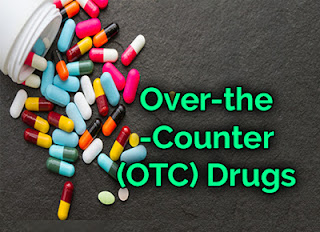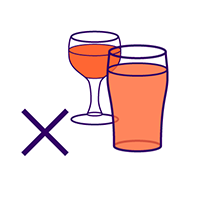Clotrimazole
Cream: Uses, Benefits, Side Effects, and Precautions
Clotrimazole cream is a highly
effective antifungal medication that can be used to treat various fungal and
yeast infections on the skin. From athlete's foot and jock itch to ringworm and
vaginal yeast infections, clotrimazole cream offers a versatile solution. In
this article, we will explore the uses, benefits, potential side effects, and
precautions associated with clotrimazole cream.
About Clotrimazole: A Versatile Fungal
Infection Cream: Clotrimazole cream is a topical antifungal medication that
effectively treats a wide range of fungal and yeast infections on the skin. Its
active ingredient, clotrimazole, belongs to the imidazole antifungal class. By
impeding the growth of fungi and interfering with their cell membranes,
clotrimazole cream combats infections and provides relief.
Common Symptoms of Fungal or Yeast Infections:
Fungal or yeast infections often manifest through localized itching, redness,
scaling, inflammation, and the formation of sores. Specific symptoms can
include vaginal itching and irritation in females, recurrent rashes in
children, and non-healing boils. Clotrimazole cream addresses these discomforts
and aids in the healing process.
Clotrimazole Cream Uses and Applications:
Clotrimazole cream is primarily used to treat fungal or yeast infections on the
skin. It is available in various forms, including vaginal cream, and
effectively combats conditions like athlete's foot, jock itch, ringworm, and
candida (vaginal yeast infection). Its composition consists of sorbitan
monostearate, polysorbate 60, cetyl esters wax, cetostearyl alcohol,
octyldodecanol, purified water, and benzyl alcohol.
How to Properly Use Clotrimazole Skin Cream:
To maximize the effectiveness of clotrimazole cream, it should be applied to
the affected area of the skin 3-4 times daily for 2-4 weeks. It is important to
cleanse and dry the area before application. Detailed instructions are provided
for specific conditions such as jock's itch, athlete's foot, candida, and hand
or nail infections. Always follow the prescribed guidelines to ensure optimal
results.
Understanding the Causes of Fungal Infections:
Fungal infections typically thrive in warm and moist environments where there
is limited air circulation. Common areas susceptible to infection include the
skin, feet, hands, and groin. By maintaining proper hygiene practices, such as
regular handwashing and keeping the skin dry, you can minimize the risk of
fungal infections.
Using Clotrimazole Cream for Scalp Fungal
Infections: Clotrimazole cream, also available as miconazole topical solution
1%, can effectively treat fungal infections on the scalp. This prescription
medication works by inhibiting fungal growth. Apply the cream once daily for
three weeks to eliminate scalp ringworm. Consult your doctor if symptoms
persist after three months.
Potential Side Effects of Clotrimazole Cream:
While clotrimazole cream is generally well-tolerated, common side effects may
include itching, redness, burning, irritation, and stinging. In some cases, it
can lead to oral thrush or vaginal yeast infections. If you experience severe
allergic reactions or unusual symptoms, seek immediate medical attention.
Storage and Disposal Guidelines for
Clotrimazole Cream: To ensure the cream's integrity and potency, store
clotrimazole cream in a cool, dark place away from heat and moisture. Room
temperature is ideal. Keep it out of reach of children and pets, and dispose of
it properly once expired.
Additional Tips for Preventing Fungal
Infections: Maintaining good hygiene practices is crucial in preventing fungal
infections. This includes regular handwashing, keeping feet and toes clean and
dry, wearing breathable footwear and clothing made of natural fibers, and
promptly drying the skin after swimming or bathing. Antifungal soaps can also
be beneficial after exercise or excessive sweating.
Precautionary Measures for Using Clotrimazole
Cream: Before using clotrimazole cream, inform your doctor of any existing
allergies or medical conditions. Pregnant or breastfeeding women should
exercise caution and consult a healthcare professional. Avoid using oil-based
creams or ointments in conjunction with clotrimazole. Follow proper application
guidelines and avoid contact with eyes, nose, ears, and mouth.
Conclusion:
Clotrimazole cream is a reliable and widely used antifungal medication for
various skin infections. By understanding its uses, proper application methods,
potential side effects, and necessary precautions, individuals can effectively
manage and treat fungal or yeast infections. Always consult with a healthcare
professional for personalized advice and recommendations.































